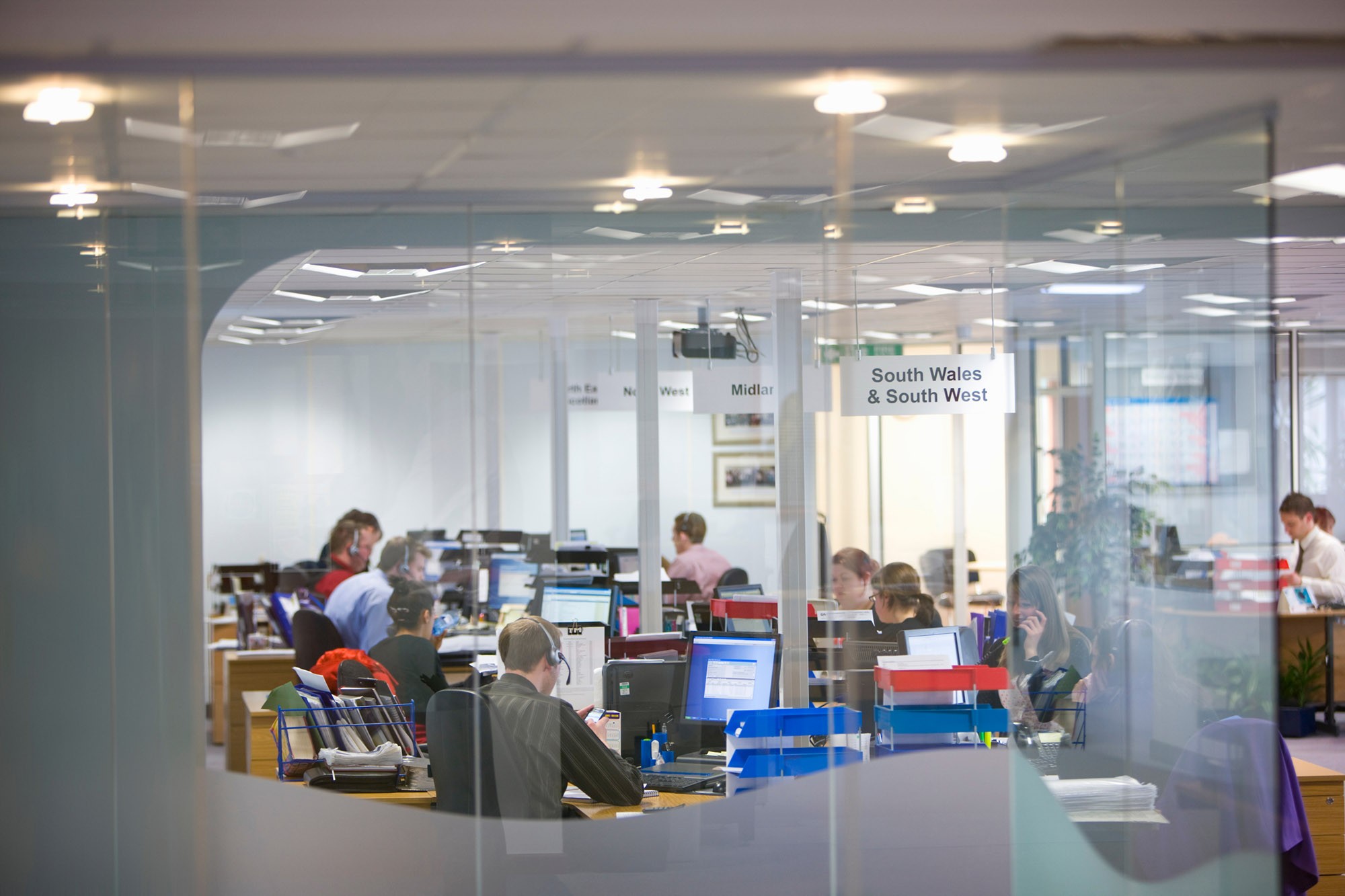
It doesn’t matter if you’re a startup, SME or an established multinational enterprise, finding the right office space will always be a major challenge. The cost of rent, the different leasing options and all the legalities can be a lot to take in. Do you need something flexible, long term or would a co-working remote office space be the most viable for your business?
You can save time and money by fully understanding the basics of office space lettings. So, if you’re about to take a leap into the office space market then this guide will help your knowledge about the types of office available, what to look for and how to tackle the commercial letting process with confidence.
Just like with most things in life the different types of office space come with their own advantages and disadvantages. How severe these are depends on your business size, plans and the amount of flexibility you need.
Low hassle, no setting up infrastructure and ready to move in. Serviced offices usually include utilities, internet, and shared facilities, like meeting rooms or reception services, all in a convenient package. An ideal solution for some businesses.
If you’re a freelancer or part of a remote team you’ve probably heard of coworking spaces. They’re incredibly handy for businesses that require flexibility as they don’t require a dedicated office every day of the week. These shared spaces often provide desks, high-speed internet, and access to communal areas like lounges and meeting rooms. They are more relaxed and cost-effective but may lack privacy. So if you need to undertake confidential meetings then it’s best to look out for office space that provides this.
A traditional office lease usually implies a long-term tenancy agreement. To provide stability businesses can let a commercial property for several years. However, these agreements can come with additional responsibilities, like handling maintenance, and utilities, and sometimes paying separate business rates. Depending on how secure your business is you’ll need to understand if it can sustain such a commitment.
Short-term office lettings usually last for six to twelve months. They give the option of flexibility, allowing businesses to expand or downsize quickly. Long-term leases, on the other hand, give security and can often come at a lower cost per month. However, they also lock you into an agreement, making them harder to break if your circumstances change.

If you’re running a business then you’re more than likely used to making informed decisions. It is no different when you’re looking for office space lettings. You’ll need to take into account several factors to ensure the longevity of your business success.
How many are in your team? Do you want private offices or open-plan? What are your growth plans? There are so many variables you need to weigh up to make sure you’re searching for the right size premises.
Flexibility is key, especially for small businesses or startups. If you’re one of these, look for lettings that offer shorter leases or break clauses. You don’t want to be tied down to a space that might not suit your needs in the future. Flexible terms allow you to adjust the office size or location as your business grows.
The cost of renting the office is just one part of the equation. Make sure you factor in additional costs, such as utilities, business rates, maintenance, and service charges. These expenses need to be baked into your business plan as they can significantly impact your overall budget. When negotiating your tenancy agreement it's important to clarify what’s included in the rental price and what you’ll need to budget for separately. Serviced offices, for example, bundle many of these costs, which can save you time, but may be more expensive than a traditional lease.
What amenities are already in the office space and what do you need to include? Do you need access to meeting rooms, high-speed internet, a shared kitchen, or parking spaces? They’re not small details, they make a big impact on your team’s general satisfaction. It’s also worth thinking about the impact on your clients—will they find it easy to reach your office, and will the facilities reflect well on your business?
You want an office that’s easy for your team to reach, whether they drive or rely on public transport. Think about the location’s accessibility and convenience for both staff and clients. A difficult-to-reach office can lead to higher staff turnover, as long commutes often reduce job satisfaction. You’ll also need to take into account how accessible the premises are for people living with a disability.
So, you’ve narrowed down the type of office space that suits your business. Now you need to get to grips with the letting process.
Office space lettings are generally structured through tenancy agreements, which outline the rent, duration, and responsibilities of both the tenant and landlord. It’s important to read these agreements carefully, as terms can vary greatly between different landlords and properties. Don’t forget to check for any hidden clauses or extra fees, like maintenance or service charges!
Flexible office lettings are often rented on a month-to-month basis or short-term contracts. This allows your business to scale its space up or down depending on its needs. Flexibility is particularly useful if you experience rapid growth or need a temporary workspace during a transition period.
Many businesses use lettings agents to help find the right office space. These brokers have access to a wide range of office lettings and can help negotiate tenancy terms. However, it’s essential to ensure that agents have your best interests at heart. Oswicks has been property professionals for over four decades and we’ve built a solid reputation over those years.

As we’ve mentioned earlier, rent isn’t the only consideration. The cost of renting office space can also depend on many factors, such as size, location, and amenities.
The primary cost is the rent itself, which is determined based on the location, size of the office and the quality of the facilities. Get an understanding of average prices for the type of office space you want. Doing so will give you a helping hand and a benchmark for negotiations.
Don’t forget about utilities, maintenance, and service charges. Some office lettings bundle these costs into a single fee (common with serviced offices), while others may leave you responsible for paying them separately. It’s crucial to account for these expenses to avoid unexpected costs later.
Negotiation is an essential part of securing a good office letting deal. If you’re looking at long-term leases, try negotiating for rent-free periods, reduced business rates, or additional services like cleaning or security.
The office space market has been shifting rapidly over the past few years, with several key trends shaping how businesses approach renting.
The rise of flexible working has made coworking spaces and serviced offices more attractive, especially for businesses that only need occasional use of office facilities. These setups give businesses the freedom to scale their space requirements up or down as needed.
Hybrid workspaces, which combine traditional office setups with more flexible, shared environments, are becoming increasingly popular. This setup offers employees the option to work from a dedicated desk a few days a week while taking advantage of coworking areas when more flexibility is needed.
Sustainability is another key trend in the office space market. Many businesses are now prioritising eco-friendly office buildings with energy-efficient designs, recycling facilities, and green spaces to reduce their carbon footprint.
Finding a space that suits your business perfectly can be the holy grail but it can come with its challenges. Fully know your options, expected expenditures and current trends to equip yourself when entering the market. Knowledge is power and you’ll feel more confident in securing the ideal office space for you and your team.
Make the lease agreement work for you now and in the future. Do you need flexibility or stability? Know your business, and know your office space requirements.
Return to Blog sectionIf you are looking for Estate Agents local to the Halstead, Braintree and Sudbury area please contact us on
01787 477559 or info@oswick.co.uk
to see how we can help.